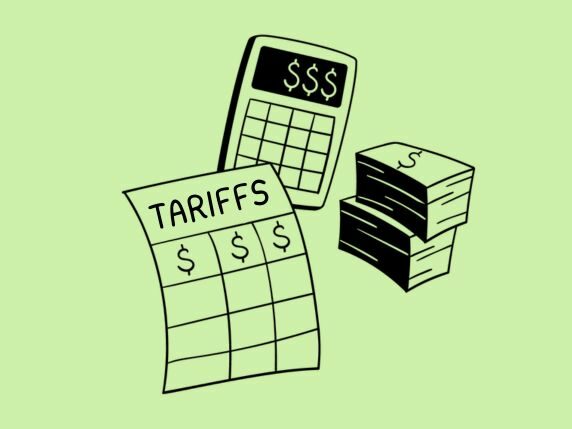If the recent headlines about US tariffs are causing concern for your business, you're not alone. Many UK businesses are closely monitoring the situation as the new US administration implements significant changes to global trade policy.
These sweeping tariffs are creating substantial disruption across global markets and international supply chains. Even if your business doesn't deal directly with the US, the effects can be far-reaching. Rising costs, delivery delays, and shifting contractual terms are already impacting UK businesses with international connections.
What’s at stake for your UK business?
You might already be feeling the early impacts, or you may be trying to figure out where vulnerabilities lie. Key concerns include:
- The potential for disrupted or repriced goods from US-based suppliers.
- Additional costs being passed down through global supply chains to UK businesses.
- Clients or partners with US exposure seeking to renegotiate existing contractual terms.
- Volatility in foreign exchange rates creating uncertainty around pricing and profitability.
Even businesses without direct US trade connections may find themselves affected by these broader economic shifts.
How can you take control now?
This is a critical moment to get ahead of potential issues by reviewing your commercial contracts. The good news? Many of your contracts may already contain terms that could offer some protection or flexibility in this changing trade environment – if you know where to look:
- Force majeure clauses may offer rights, depending on how they’re worded and their interpretation (e.g., if they specifically mention government actions regarding tariffs). However, English courts tend to interpret these provisions very strictly, and it may be unlikely that tariffs will constitute a force majeure event.
- Price adjustment or increase clauses could allow you to increase pricing structures, but only if your contract expressly includes appropriate mechanisms.
- Governing law, jurisdiction, and dispute resolution terms become particularly important if contractual disagreements arise from these trade changes.
- Variation provisions give you the chance to negotiate resolutions with the other party. Find out more about the contract variation process here.
- Termination rights could provide options if certain agreements no longer make commercial sense due to increased costs, and your contracts include the specific right to terminate for convenience. Still, there are risks to terminating a business contract. You’ll need to ensure you have valid and lawful grounds to terminate, and it is always advisable to seek legal advice before you do.
- Financial risk allocation provisions could determine which party bears the financial burden for tariffs and costs relating to imports.
If you haven’t looked at these clauses in a while, it would be prudent to do so now. As well as looking at your existing contracts for immediate support, now is the time to look forward and think about how you can strengthen your contracts further so they offer you even more protection when navigating economic uncertainty.
Opportunity in uncertainty
While disruption can be daunting, it could also open the door to opportunity. Your agility can be a competitive edge if your competitors are slow to respond. Businesses that respond effectively to changing conditions may gain an advantage. A clear understanding of your contractual position can help you act fast – whether renegotiating terms, finding new suppliers, or entering new markets.
Commercial Partner, Stephen Pearne, explains the importance of taking immediate action:
The new US tariffs are creating real uncertainty for UK businesses, and for many, the impact is already being felt in supply chains, pricing, and commercial relationships. But disruption doesn’t have to mean disaster. With the right approach, it’s possible to get ahead of the risks and even find opportunity in the change. We’re helping clients stress-test their contracts, navigate difficult conversations, and protect their margins.
This is a real-life example of how contracts can help mitigate risks during severe economic challenges and provide critical support and options for commercial parties. It’s vital to invest in robust contracts and review them over time to make sure they’re as effective as possible and flexible to protect your business and relationships in times of change like this.
Don’t wait until your terms are costing you
If you're uncertain about how these new trade conditions might affect your current agreements, our commercial law solicitors can help. We can help you identify risks, strengthen your business position, and develop appropriate response strategies.
The current trade environment presents significant challenges, but with proper preparation and legal support, your business can effectively navigate these changes.







